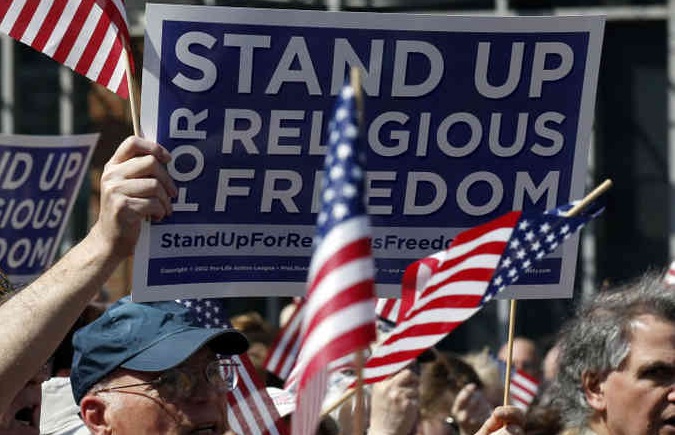In a huge victory for pro-life Advocates, the Trump Administration has settled lawsuits with a firm representing more than 70 clients fighting the Obama abortion mandate.
Dozens of Christian-run organizations and businesses filed suit in response to the Obamacare abortion mandate that forced them to pay for abortion-causing drugs in their employee health insurance plans. The Obama Administration refused to provide religious or moral exemptions for those companies and groups so they filed suit.
Last week, President Donald Trump expanded the religious and moral exemptions to allow for additional protection for those Christian organizations and others who don’t want to be forced to pay for abortion-causing drugs under their health insurance coverage. The settlement expands the Trump Administration efforts to protect Christians and those who want to not be involved in abortions.
One of the advantages of the settlement is that the terms and protections are binding even if a future president puts the abortion mandate back in place fully.
The Oct. 13 agreement was reached between the government and the law firm Jones Day, which represented more than 70 clients fighting the mandate. Made public Oct. 16, the agreement states that the plaintiffs would not be forced to provide health insurance coverage for “morally unacceptable” products and procedures, including contraception, sterilization and abortion-inducing drugs.
“This settlement brings to a conclusion our litigation challenging the Health and Human Services’ mandate obliging our institutions to provide support for morally objectionable activities, as well as a level of assurance as we move into the future,” said Cardinal Donald Wuerl of Washington, D.C., in an Oct. 16 letter to priests of the archdiocese.
The Archdiocese of Washington was one of more than 300 plaintiffs who had challenged the mandate, arguing “that the practice of our faith was inextricably tied to the ministries that put that faith into action,” and that, as such, they should not be forced to violate their faith to continue their ministries, Wuerl recalled.
Keep up with the latest pro-life news and information on Twitter. Follow @LifeNewsHQ
The archdiocese and six other plaintiffs had argued their position before the Supreme Court in the case Zubik v. Burwell. In 2016, the high court ruled against the government’s requirement that certain employers provide and pay for the morally objectionable services.
“While the Trump administration’s executive order on religious liberty and new guidelines and regulations are extremely helpful, the settlement of the Zubik litigation adds a leavening of certainty moving forward,” the cardinal added.
The Department of Justice’s new settlement “removes doubt” and closes these cases challenging the mandate, the cardinal continued. “The settlement adds additional assurances that we will not be subject to enforcement or imposition of similar regulations imposing such morally unacceptable mandates moving forward,” he stated.
The controversial mandate has twice made it to the Supreme Court where the nation’s highest court sided with both Hobby Lobby and Little Sisters of the Poor and their attempts to not be forced to pay for abortion causing drugs in violation of their consciences.
The court ruled that Hobby Lobby and other similar businesses were protected by the Religious Freedom Restoration Act of 1993, which states that an individual’s religious expression shouldn’t be “substantially burdened” by a law unless there is a “compelling government interest.”
In the Hobby Lobby ruling, Supreme Court Justice Samuel Alito wrote that the ACA’s contraception rule “would put these merchants to a difficult choice: either give up the right to seek judicial protection of their religious liberty or forgo the benefits, available to their competitors, of operating as corporations.”
The Trump administration says the new rules are motivated by “our desire to bring to a close the more than five years of litigation” over the pro-abortion mandate.
The new rules argue that the Affordable Cart Act does not mandate coverage of birth control, which could mean hundreds of thousands of women would no longer have access to the contraceptive without a copay.








